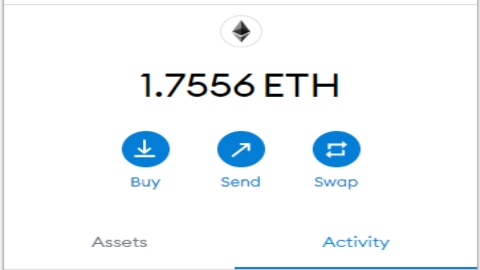The sanctions tighten on Russia. “That means that the diplomatic route is left aside, to adopt a more demanding position, which is welcome.” That Russia is expelled from the Swift system, which enables the realization of interbank payments worldwide, has important consequences. But has a double game, because the Russian debt affects the excluded country but also the one that has to receive it. “That is a consequence that must be evaluated,” he points out. Alberto Roldán, director of investments at Metagestion. To get an idea, traffic through the Swift network grew by 11.2% in 2021, reaching a daily average of 42 million payments and securities transactions.
Also keep in mind that Russia has its own payment system and it could break payments and financing systems with the West and move towards China and the Middle East. “We began to enter into a dangerous dynamic with unpredictable consequences,” explains Roldán.
The central bank of Russia announced on Sunday a series of measures to support domestic marketsas he struggles to manage the mounting fallout from harsh Western sanctions imposed over the weekend in retaliation for Moscow’s invasion of Ukraine.
The institution raised its reference interest rate this Monday from 9.5% to 20% in an emergency decision, while Russian authorities asked export-focused companies to sell foreign currency as the ruble fell to record lows.
“The external conditions of the Russian economy have changed drastically,” the Russian central bank said in a statement.
“The increase in the base interest rate will ensure that deposit rates rise to the levels necessary to offset increased depreciation and inflation risks. This is necessary to support financial and price stability and protect savings from investors. citizens of depreciation”.
How do sanctions affect banking and inflation?
As Alberto Roldán explains, from Metagestion they made a bet not to be so invested in banks, because they saw that there were short- and medium-term risks. “The financial system is a complex system (…) that establishes loan guarantees at an international level and when these circumstances occur, the most affected banks are those that have acted as lenders to Russian companies or the Russian government.”
That for banking. But also raw materials are being particularly affectedwith higher oil and gas prices and also a significant impact on agricultural raw materials, given Ukraine’s high grain production.
This will add more pressure to inflation and with it to central banks. But in this environment of high volatility, the withdrawal of pandemic stimulus is complicated.
Thus, the money markets of the euro zone reduced even more expectations of interest rate hikes by the European Central Bank. Money market futures dated from this year’s ECB meetings are now trading at a full 30 basis points by the end of the year, up from about 35 basis points last week. This would be equivalent to the ECB making three 10 basis point rate hikes this year.
Investors have also delayed expectations about the timing of the first rate hike by the ECB, with the first move fully expected in September, compared to June this month.
Russia’s attack on Ukraine has caused investors to reduce their bets on rate hikes in major developed economies.
Today we see significant falls for the IBEX 35 banks. Near the mid-session, Banco Santander fell 5%, BBVA fell 4.34%, Banco Sabadell yielded 4.29%, Caixabank 3.57% and Bankinter leaves 3.44%.
